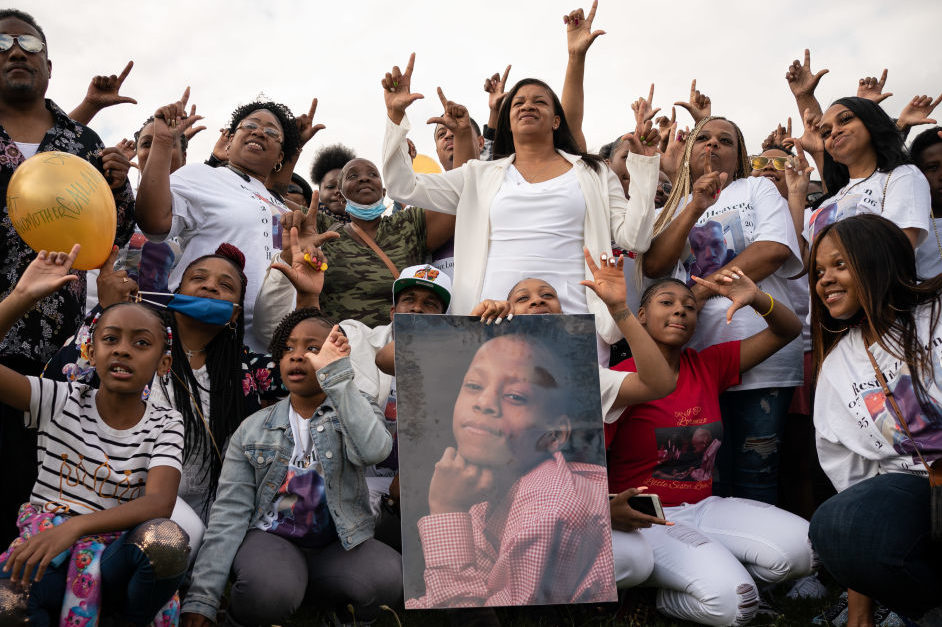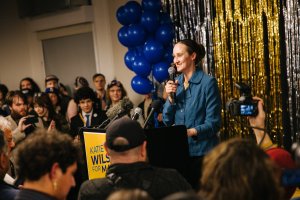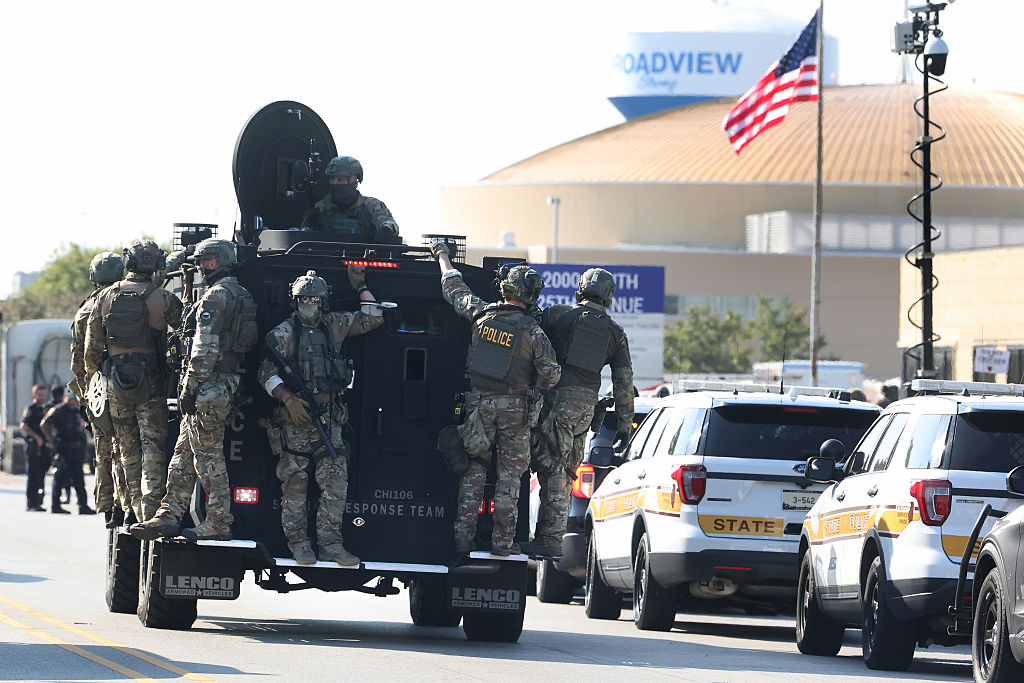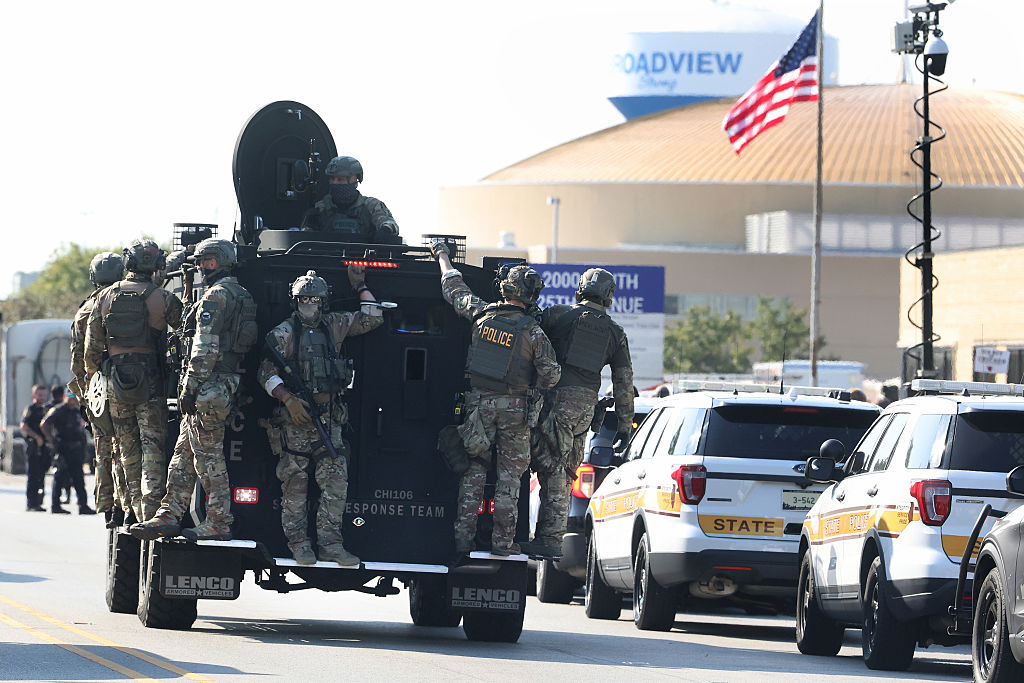‘I understand black lives matter. But that’s not my movement, right now. My movement is to let them know that was my son. Horace Lorenzo Anderson was my son.’ And his son is dead.
In a gripping, gut wrenching, heartrending, half-hour interview with Sean Hannity of Fox News, Horace Lorenzo Anderson, Sr tearfully beseeched social justice warriors and anyone watching that his son’s black life mattered, too.
Horace Jr. was just 19 years old when he was shot and killed at Seattle’s Capitol Hill Ongoing Protest (CHOP), the police-free, six-block city encampment created with the blessing of Democratic officials. Seattle mayor Jenny Durkan cheerfully dubbed the anarchist takeover a ‘summer of love’, apparently unaware that the first Summer of Love, in San Francisco’s Haight-Ashbury district in 1967, ended in rampant criminality, drug addiction, sex abuse and the other varieties of misery which have marred the City by the Bay ever since.
Hunter S. Thompson, the gonzo chronicler of the original gung-ho hippies, said of that first ecstatic experiment: ‘There had to be a whole new scene, they said, and the only way to do it was to make the big move — either figuratively or literally — from Berkeley to the Haight-Ashbury, from pragmatism to mysticism, from politics to dope.’ Thompson, a dope connoisseur, wryly observed, ‘The thrust is no longer for “change” or “progress” or “revolution”, but merely to escape, to live on the far perimeter of a world that might have been.’
What might have been for Horace Jr. had he never crossed the perimeter of CHOP? What if he had managed to escape his revolutionary captors who blocked paramedics from coming to his rescue as he bled to death in their new urban utopia?
What might have been for eight-year-old Secoriea Turner had she survived Atlanta’s Fourth of July? During a press conference Sunday night, her anguished father, his voice hoarse, pleaded, ‘They say, “black lives matter”. You killed your own. You killed your own this time just because of a barrier. They killed my baby.’
Atlanta’s mayor Keisha Lance Bottoms, flanked by Turner, grim-faced police officers and families grieving the weekend orgy of violence, was unequivocal and unsparing: ‘The reality is this: these aren’t police officers shooting people on the streets of Atlanta. These are members of the community shooting each other – and, in this case, it is the worst possible outcome.’
In Chicago, another father bore painful witness to the worst possible outcome: his baby being killed over the Fourth of July over some unfathomable dispute. Seven-year-old Natalia Wallace was shot at a weekend party in her grandmother’s backyard. Nathan Wallace told reporters, ‘To see my daughter on the table with a gunshot wound to the forehead, that will change somebody’s life.’
Tyrone Muhammad, a Chicago activist and founder of the fledgling group Ex-Cons for Community and Social Change”, works to change lives before the bullets fly. Muhammad knows both sides of the violence equation. He spent over two decades in prison for murder. He went in a hard-eyed gangster and came out determined to keep other young men from making the same disastrous trek from the South Side to steel bars. I called him for his reaction to the mayhem we saw erupt over the holiday weekend. The local leader told me that he puts very little store in the current slogans and sloganeers:
‘“Black Lives Matter” seems to only matter when it’s a police-related shooting. I don’t see white women or white men marching where violence is happening.’ Muhammad is withering about the politics and goals of Black Lives Matter as an organization, however loosely affiliated it may be. ‘Black Lives Matter is a political group that has so many political leanings that it clearly uses black death as a hustle. Black death is a hustle for a lot of these outside groups.’
A hustle, Tyrone Muhammad believes, that ignores the root of the problem driving what he calls a ‘swarm of civil war’ engulfing America’s inner cities: fatherless homes, broken families, official corruption and complacent communities:
‘It’s black men’s fault to allow black boys and black men to victimize their own communities and murder their children. We have to take personal responsibility.’ He adds. ‘It should be commended whenever black men say, “It’s our responsibility to reduce violence.”’
[special_offer]

























